Welcome to a detailed exploration of the connection between obesity and infertility. In a world where sedentary lifestyles and unhealthy eating habits are on the rise, obesity has become a major health concern. While we are familiar with the well-known cardiovascular risks associated with obesity, it is vital in this age of increasing obesity to comprehend the profound impact that excess weight can have on fertility. This article aims to shed light on this topic, providing valuable insights, expert knowledge, and practical solutions for those grappling with this issue. Let's delve into this complex relationship.
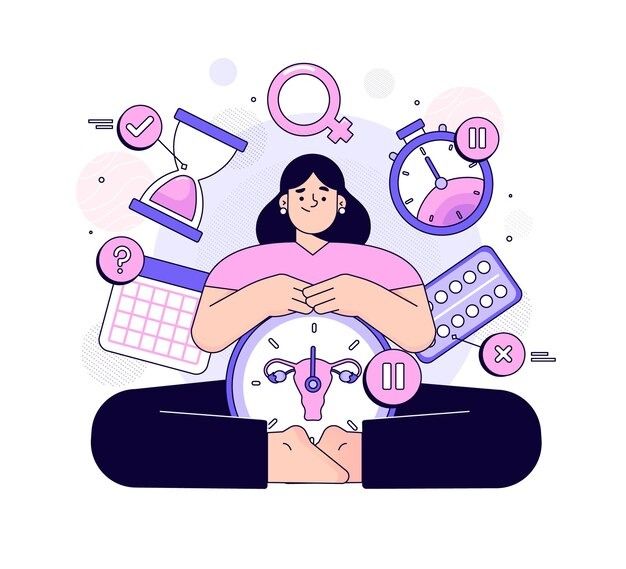
Obesity can exert a substantial influence on fertility, affecting both men and women. Excess body fat can lead to hormonal imbalances, disrupting the delicate interplay of hormones necessary for conception. Additionally, obesity is often associated with insulin resistance, which can further complicate matters.
Do you know, as per the American Society for Reproductive Medicine (ASRM), obesity is the cause of infertility in about 6% of women who haven’t been pregnant before?
Let's explore how obesity impacts various aspects of the reproductive process in women.
Take charge of your health and your life. Contact us today!
Impact of Obesity on Female Fertility
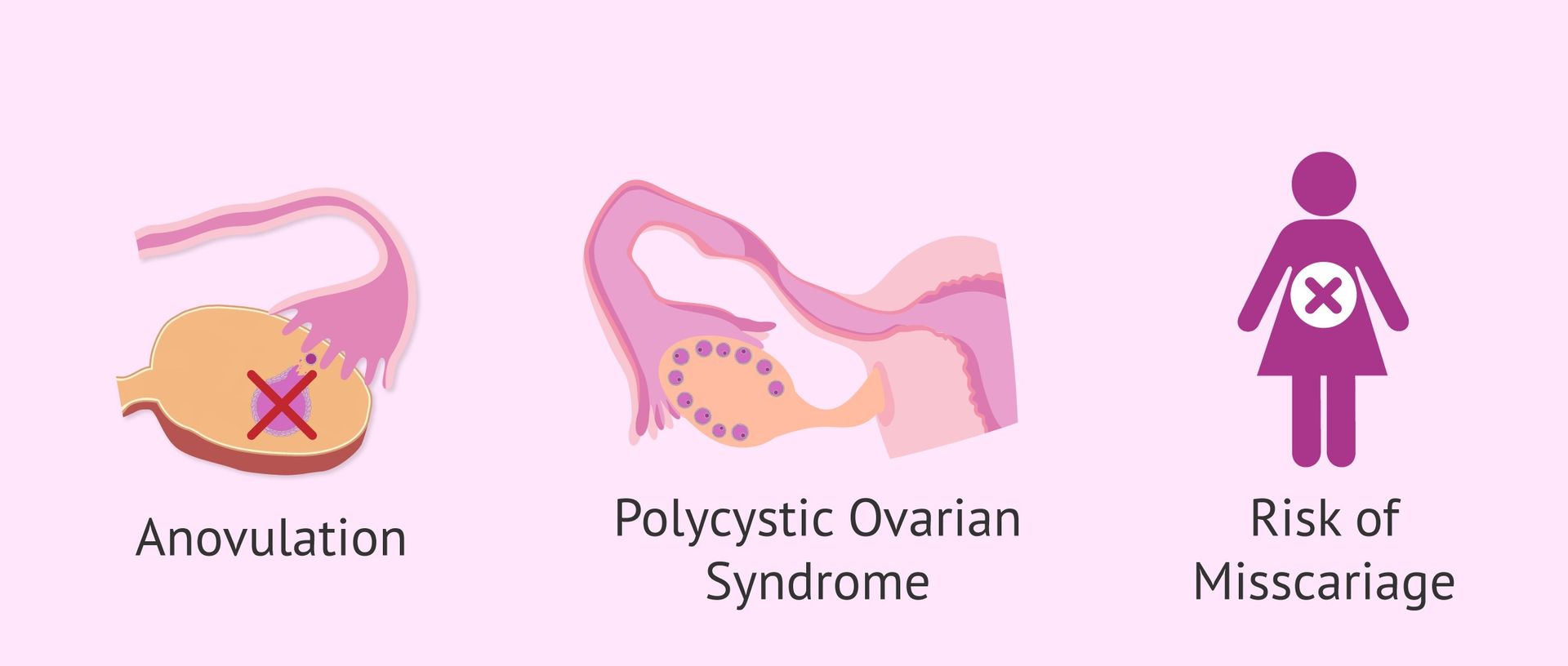
Obesity can have a profound impact on female fertility. Here, we'll delve into how it affects various aspects of the reproductive process.
- Irregular Menstrual Cycles: The hormones in our body control the menstrual cycle. Obesity can mess up the hormonal balance in your body. As you become overweight, the fat cells in your body produce a higher amount of leptin hormone. This disruption in hormone levels causes obesity and infertility.
- Reduced Egg Quality: The quality of eggs is vital for fertilization and implantation. Obesity can lead to poor egg quality, making it harder to achieve a successful pregnancy. Even if overweight women still release eggs, the eggs may not be as good for pregnancy. Research suggests that for each unit of higher BMI above 29, the chance of getting pregnant within a year decreases by about 4%.
- Increased Risk of Pregnancy Complications: Obese women who do conceive are at a higher risk of pregnancy complications, such as gestational diabetes and preeclampsia. These complications can negatively impact both maternal and fetal health.
But what about men?
Can obesity affect male fertility?
Certainly, obesity and infertility are also interlinked in the case of males. Let's explore how obesity can influence male fertility.
Impact of Obesity on Male Fertility
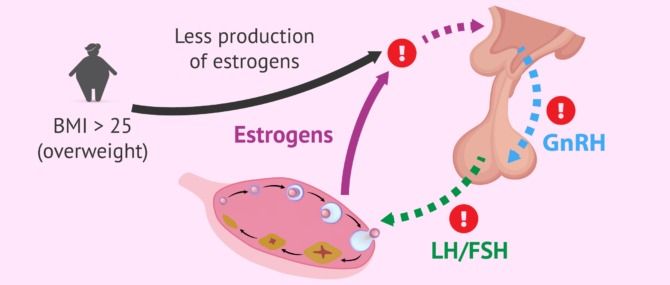
- Sperm Quality and Quantity: Obesity and male infertility are caused due to rising body heat around the groin. This causes hormone imbalances, resulting in lower sperm counts and reduced sperm quality. As per a study, obese men have 11% more chances of reduced sperm count. Obesity also increases the chances of having no sperm by 39%. Obesity in men leads to poor sperm quality which leads to cases of miscarriage.
- Erectile Dysfunction: Obesity is a risk factor for erectile dysfunction (ED). ED can further hinder a couple's ability to conceive.
Wondering about hormonal changes? Does obesity affect male hormone levels?
- Hormonal imbalance: Yes, obesity certainly affects the male hormone levels. The hormonal imbalance in men can be responsible for obesity and male infertility. Males who are overweight tend to produce higher levels of estrogen in their bodies. The levels of testosterone decrease in the male body due to obesity. These alterations in hormonal balance can reduce sperm production in males.
BMI and fertility—how do they relate? Let's find out.
Take the First Step Toward Parenthood – Consult Us!
Is there a specific BMI range that affects fertility?
Yes, there is a connection between BMI and fertility. Women who have a lower BMI and those who have a higher BMI, both are at risk of having fertility issues. In general,
- Women who have a lower BMI i.e. below 18.5 or are underweight can also face challenges in conceiving a baby.
- Talking of those who are obese or have a higher BMI than normal i.e. 24 are at high risk of obesity and infertility.
However, you should know that there is no specific BMI range that causes obesity and infertility.
As per a study,
- Women who were overweight waited 17% longer to get pregnant compared to those in the normal weight range.
- Obese women waited 25% longer, and
- Extremely obese women waited 39% longer. Hence, BMI and fertility affect each other.
Feeling stuck? Learn about reversing obesity-related infertility.
Is obesity-related infertility reversible?
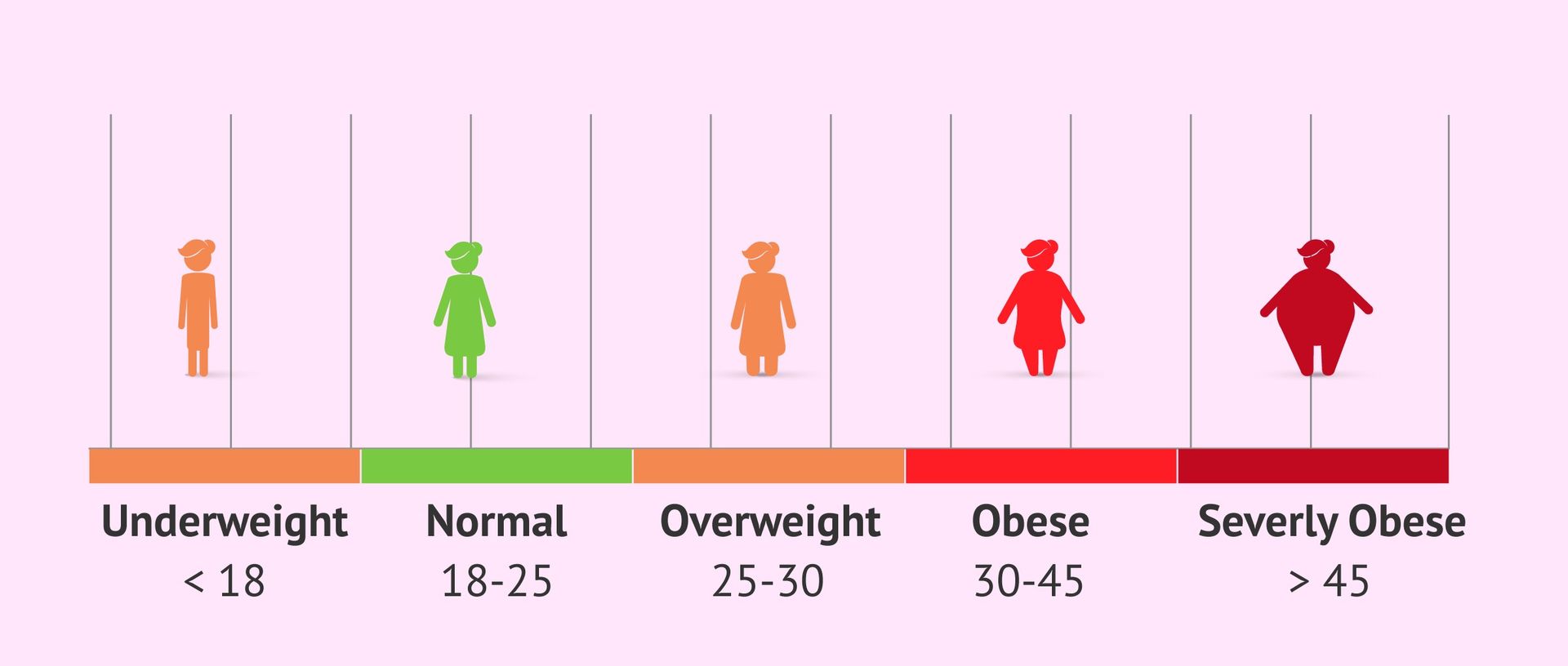
Yes, obesity and infertility can certainly be reversed. Lifestyle changes and medical interventions can help in reversing obesity-related infertility.
- Key steps include weight management, a healthy diet and regular exercise.
- It is also important to treat underlying conditions.
- Lifestyle modifications like stress reduction and avoiding smoking and excessive alcohol can also help.
However, the success rates might vary depending on individual conditions and situations.
Seeking solutions? Find out how couples with obesity and fertility concerns can get the support they need!
How can couples with obesity and fertility issues seek help?

Couples with obesity and fertility issues should seek help. It is important to identify the underlying concern and get proper treatment.
- Consult a healthcare provider: Talk to a fertility specialist to understand your problem. It's essential to work closely with a fertility specialist to determine the most suitable treatment approach.
- Address underlying conditions like PCOS, in case you have it. Explore options like IVF or IUI to address your fertility issues.
- Try to manage and maintain a healthy BMI for obesity and infertility issues. Also, it is very important to have the right BMI for IVF and reproductive technologies used for treating infertility.
- Join a support group and educate yourself about fertility, treatment options and the latest advancements to make informed decisions.
Are fertility medications less effective due to obesity? Let's explore this concern.
Embark on Your Journey to Parenthood – Get in Touch Today!
Can obesity affect the success of fertility medications?
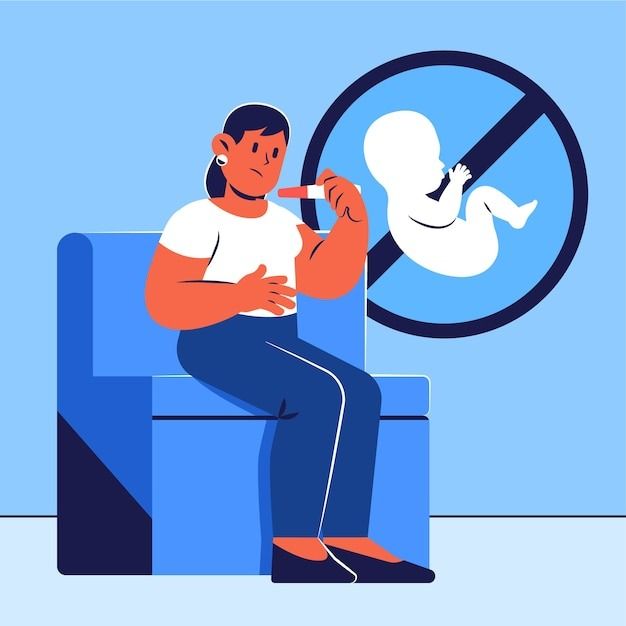
Yes, obesity can also affect the success of fertility medications in several ways:
- Obesity and infertility are due to hormonal imbalances. Obesity leads to increased levels of insulin and estrogen in the body. Obesity also decreases the levels of sex hormone-binding globulin (SHBG). These hormonal imbalances affect the success of fertility medications.
- Obesity and infertility are also associated with insulin resistance. In such a case, the body doesn’t respond well to insulin. This leads to an irregular menstrual cycle and ultimately affects BMI and fertility.
- Obese individuals need high doses of fertility medications to stimulate ovulation. High doses of these medicines cause a number of side effects and complications.
- Obese individuals show lower responses to fertility medications. As a result, fewer eggs are produced by the woman during the IVF procedure.
- Obesity and fertility have a negative relation. Obesity impacts egg quality. This makes the fertilization during IVF very much challenging.
- Obesity can cause PCOS, Hence, fertility medications again become ineffective in treating infertility because of not address underlying conditions.
Now, let's discuss how obesity can influence fertility treatments, particularly IVF.
How does obesity impact fertility treatments like IVF?
Obesity can affect fertility treatments like IVF in several ways:
- Obesity in women can lower the success rates of IVF procedures.
- Due to obesity, women require high doses of fertility medications. This increases the risk of side effects.
- Obesity reduces the quality of eggs and sperm. Poor quality of egg and sperm in turn lowers the chances of successful fertilization during IVF.
- The right BMI for IVF is very important. People who are obese have a higher risk of surgical complications during egg retrieval.
- Obesity leads to hormonal imbalances. For IVF procedures to be successful there should be hormonal balance in your body. Obesity and fertility are affected by IVF due to hormonal imbalances.
- Obesity also increases the chances of pregnancy complications like gestational diabetes and high blood pressure. This can also affect IVF.
Ready for a change? Discover lifestyle adjustments that can aid fertility in obesity.
Your well-being is our priority - call us to book your appointment today.
Are there any specific lifestyle changes that can help with fertility in obese individuals?

Lifestyle changes play a very crucial role in treating obesity and infertility:
- Maintaining a healthy weight: Healthy BMI and fertility are directly proportional. Healthy weight does help in improving the fertility health of men and women.
- Have a healthy diet: Try to adopt a balanced and nutritious diet. Include whole foods, fruits, vegetables, lean proteins and whole grains. Avoid excessive calorie intake and processed foods.
- Engage in regular exercise: It helps in weight loss and hormone regulation. Try to indulge in at least 150 minutes of moderate-intensity exercise per week.
- Practice stress reduction techniques like yoga, meditation and deep breathing. Maintaining your stress will help in preventing the hormone disruption in your body.
- Avoid smoking and drinking excessive alcohol. These habits negatively impact fertility. Avoiding smoking and drinking reduces the chances of obesity and infertility.
References:






